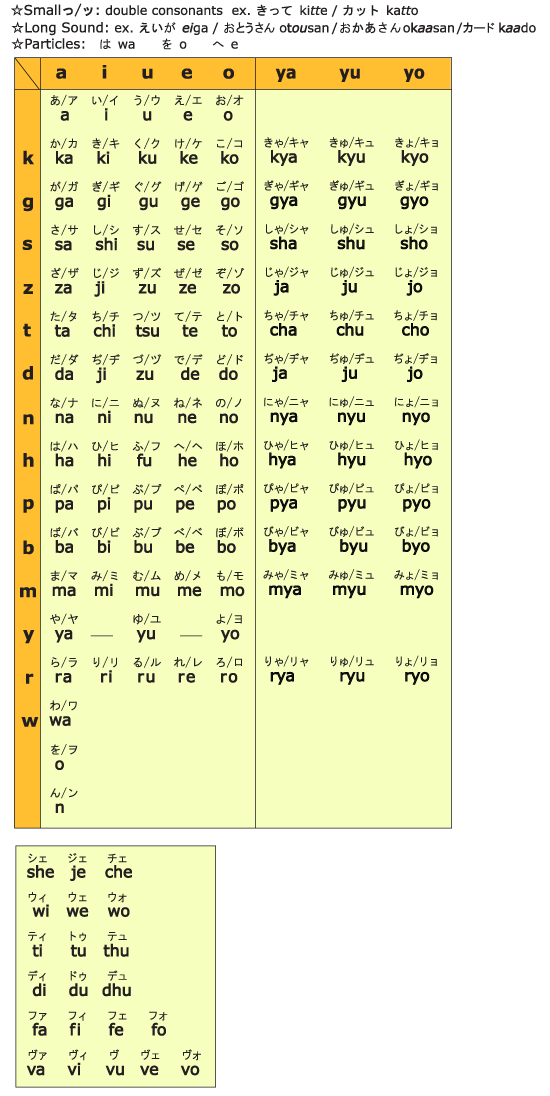Notation
Notation Basic Rules
At 'Nihongo de Care-Navi' we thought about how to make the Japanese notation easily accessible to beginner-level learners too. Because of this, when showing katakana words in hiragana notation, or in the case of baby-talk or mimetic words, the long vowels in hiragana words are displayed using 「ー」, e.g. 「ぱーと(パート)」. In romaji notation, as far as possible we tried to present the romaji so that, when read, it remains as close as possible to the original Japanese. Therefore, there may be occasions when the romaji notation differs in places from the typical style employed elsewhere.
- Long Vowel Notation
- Native Japanese words: Conforms to hiragana, e.g. おかあさん(okaasan) うんどうする(undousuru)
- Katakana (loan) words: Vowels are continued (lengthened with the same letter), e.g. シャワー(shawaa) コーヒー(koohii)
「ふ」 is written as 「fu」, e.g. ふとん(futon) もうふ(moufu)
Romaji Notation
Special sounds (differing from the norm)
| Hiragana | Katakana | Roman Alphabet | |
|---|---|---|---|
| long vowels (example) |
|
|
|
| syllabic nasal (example) |
|
|
|
| double consonants (example) | きって(切手) | kitte |
* "n" is replaced by "m" before "b","n" and "p".
Contrast Table of Roman Alphabet and Kana

Symbols
( )
- used for omissible particles: e.g. sentaku (o) suru
- used for words often used together: e.g. ukeru (booru o --)
- used for na-adjective: e.g. genki (na)
- used for polite prefixes: e.g. (o) furo
・
- used in a series of the same letter in romaji (except long vowels and double consonants).
- dai・ichi・inshou 第一印象
- used in case of confusion with nasal syllables.
- kuri・nikku クリニック
- na-adjective
- genki (na)
- used in a series of "n".
- han・nou 反応
--
- used in the case of a target word/expression together with the word often used alongside it.
- omoi(byooki ga --/kega ga --)
- used to show omission/abridgment
- mettani --nai
- used before a suffix
- --chan
/
- to show multiple examples
- twist (one's body / legs)
[ ]
- to show abbreviation, katakana-words
- [kinto] : abbreviation of pediatrics
Name of a person
- Mr./Ms. O, Mr./Ms. X.etc
- Mr./Ms. Tanaka is screaming
Name of a company or organization
- XX
- My name is O of XX.
Priority for learning
 : very high priority
: very high priority : high priority
: high priority : less priority
: less priority